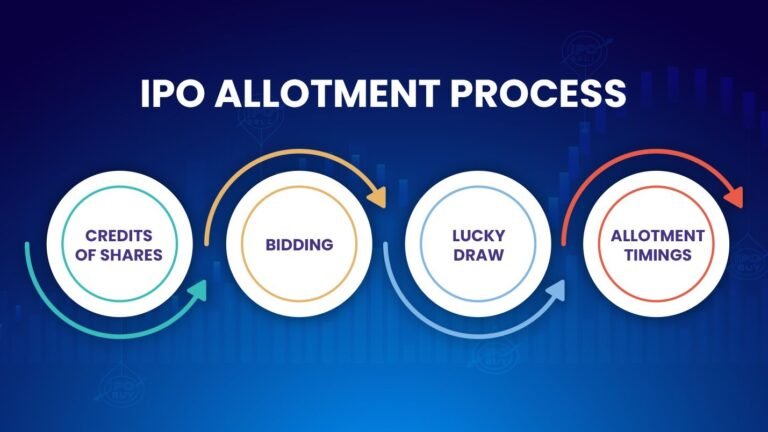Participating in an Initial Public Offering (IPO) is an exciting step, offering investors the chance to capitalise on a company’s early growth. Once you’ve submitted your bid, the next step is to check your IPO allotment status to see if you’ve been allotted shares.
To start with, you’ll need to open Demat account or open trading account, which enables smooth participation in an IPO and easy tracking of your allotment status.
The IPO allotment process typically takes a few days after the bidding window closes, during which the appointed registrar finalises the list of successful allottees.
Once the process is complete, you can check your IPO allotment status online through various methods. Here’s a quick guide on how to track it and tips to enhance your allocation chances.
Methods to Check IPO Allotment Status
Option 1: Check through the IPO Order Book
If you applied online, log in and navigate to your IPO order book. The ‘Shares Allotted’ column will indicate your application status, making it an easy way to verify your IPO allotment status.
Option 2: Check Allotment on the BSE Website
The BSE offers a quick way to check:
- Visit the BSE IPO allotment page.
- Enter your application or PAN number.
- Click ‘Search’ to view your status.
This method is straightforward and doesn’t require a trading account login, making it accessible to all investors.
Option 3: Check via the Registrar’s Website
Each IPO has a registrar, like KFin Technologies or Link Intime India, managing the IPO allotment process. They offer a portal where you can check your status via:
- Application Number
- DP ID/Client Number
- PAN Number
Go to the registrar’s website, select the relevant IPO and enter your details to check the allotment status. This method is reliable and typically available once the registrar completes the IPO allotment process.
Is it Possible to Apply for an IPO Multiple Times Under the Same Name?
No, you can’t submit multiple applications using the same Demat account or PAN number, as this will lead to disqualification. The IPO allotment process allows only one application per account and PAN.
However, you may apply through separate accounts for family members, each with their own Demat and PAN.
Is it Possible to Apply for an IPO Offline?
Yes, offline application is possible by filling out an IPO application form, available at select bank branches. After filling, submit it at the bank. This method is ideal for those preferring manual applications over online methods.
Does Bidding for Multiple Lots Increase Allocation Chances?
In oversubscribed IPOs, applying for multiple lots under one account does not increase the chances of allotment since only one lot may be allotted per successful application.
However, submitting separate applications via family members’ accounts can improve chances, as each is considered independently.
Importance of Tracking Your IPO Allotment Status
Knowing your IPO allotment status early provides clarity on your next investment steps, whether to hold or sell the shares after listing. Monitoring the status also helps you stay prepared to act on investment strategies based on the allotment outcome.
IPO Allotment and Refund Process
If you don’t receive an allotment, funds blocked in your account will be released after the allotment process. The refund happens automatically via UPI or ASBA, depending on the payment method used. Refunds typically process within days of the IPO allotment process, so monitor your bank account for returned funds.
Enhancing Your IPO Allocation Chances
While you can’t control the IPO allotment process, some strategies may help:
- Apply from Different Accounts: Submitting applications from family members’ accounts can improve chances.
- Bid at the Cut-Off Price: Many investors bid at the cut-off price, which can improve allocation in oversubscribed IPOs.
- Retail and HNI Quotas: Some IPOs have separate quotas for retail and HNI categories, offering more allocation opportunities for eligible investors.
Conclusion
Tracking your IPO allotment status is essential once you’ve applied. With multiple ways to check—from your trading account to the BSE or registrar websites—investors have plenty of options.
As IPOs attract growing interest in India, having a Demat account and understanding the IPO allotment process are critical for those eager to seize these opportunities.
By promptly checking allotment status and following these tips, investors can make well-informed decisions in their IPO journey.


